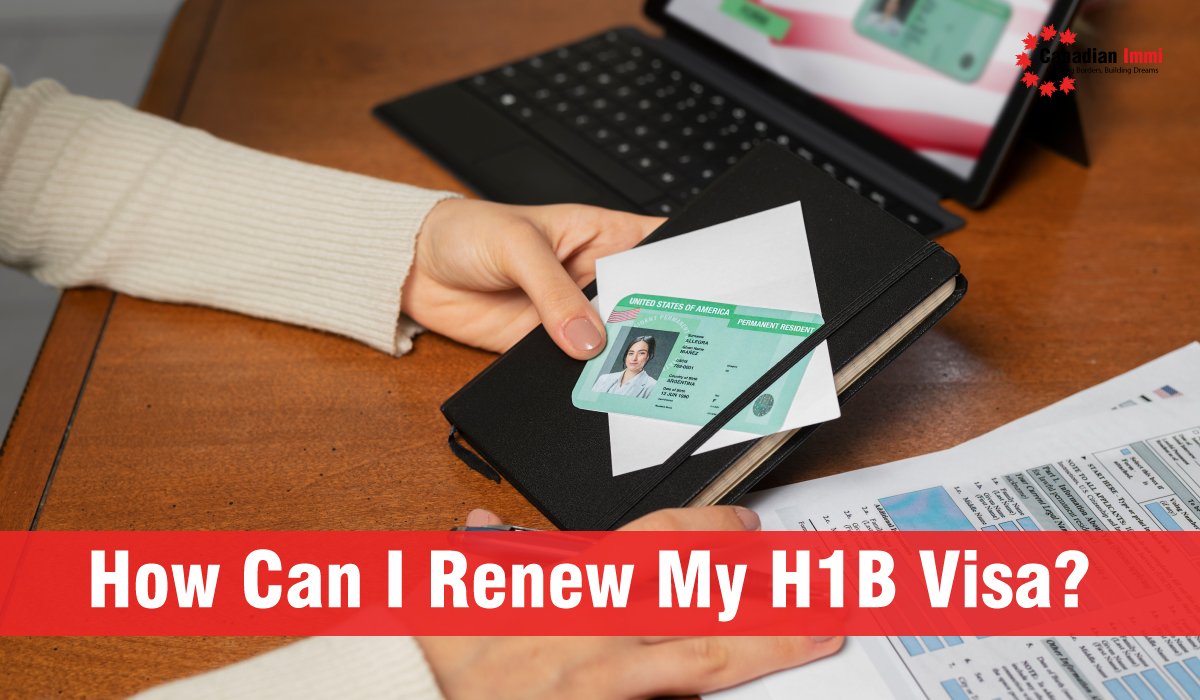H-1B visa holders have a wide range of obligations and rights. One of the most important is maintaining valid status.
To renew their status, an H1B beneficiary must submit a new I-129 petition to their employer. The process can take time, and many conditions must be met.
The 240-Day Rule
USCIS regulations allow H-1B visa holders who have filed a timely extension petition with their employer to remain in the United States and continue working for up to 240 days after their current I-94 expires, or until their H-1B extension petition is adjudicated by USCIS (whichever occurs first). This 240-day rule does not create an unlawful presence in the United States for those individuals who are still in the country as of their I-94 expiration date, so long as they continue to work.
If an individual’s H-1B extension petition is not approved by the end of 240 days following the filing of their extension petition, they will need to leave the United States and begin making plans to either return home or find alternate employment elsewhere. To qualify for the 240-day rule, a foreign national must meet certain conditions such as having a valid job offer and a Labor Condition Application (LCA) from their employer that attests they will pay the prevailing wage for their position and that they satisfy other labor requirements.
It is important to note that the 240-day rule only applies to extensions submitted with the same employer. If an individual wishes to switch employers after their H-1B extension has been pending for 240 days, they will need to leave the country before their i-94 expires or until their transfer petition has been adjudicated by USCIS.
To avoid having their H-1B workers have to depart the United States before receiving approval of their extension petition, employers should consider upgrading their cases to premium processing for a fee. This will speed up the processing time by reducing the waiting period from the normal six months to 15 calendar days. Employers should consult with an experienced immigration attorney to learn more about the most efficient and effective methods for obtaining an extension for their employees and how to maximize the 240-day rule. Sethi and Mazaheri are pleased to assist with both non-cap and cap-subject H-1B extension petitions. Contact us today to see how we can help.

The Six-Year Limit
H1B workers are allowed a maximum of six years in the country. If a foreign national is nearing the end of their six-year limit, they may have to leave the country. There are ways to recapture time spent outside of the United States to stay longer, but this process is a bit complicated and it can be risky for some H-1B employees.
For example, if an employee is in the fifth year of their visa and is about to reach the six-year limit, they can file for an extension. They will have to wait for the USCIS to approve the petition. This could take up to a year. In the meantime, the worker should remain in the United States. While they are waiting, the worker should apply for a work permit. They can do this by filing Form I-485 with the USCIS. The worker can then work for any employer in the United States as long as they are approved to do so by the U.S. Citizenship and Immigration Services (USCIS).
Another option for those who need to stay in the country is to extend their H-1B visa through AC21. This provision allows employers to extend the status of certain workers who have already reached their six-year limit by up to three additional years. However, the AC21 process is not available to all H-1B visa holders. Only those who have a specific qualifying degree from a US institution of higher learning can be granted this extension.
There are rumors that the USCIS will soon begin offering domestic H-1B visa renewals. This would allow employers to avoid the lengthy consular interview wait times. However, this will only be possible if the applicant has been counted against the cap in the past.
This is because the USCIS will not reopen the 20,000 slots in the H-1B cap for new applicants until they have processed all the applications that were submitted on or before January 29. This is expected to happen sometime in early 2023. In the meantime, workers who need to renew their H-1B should do so well in advance of the expiration date indicated on their i94.
Recaptured Time
When an H-1B visa holder travels internationally, it can be difficult to keep track of their time outside the United States. Thankfully, USCIS allows H-1B holders to recapture the time they spend abroad, which can help them extend their visa beyond six years. The process is called “recaptured time.” It works as follows:
When a foreign worker files a petition to extend their H-1B status, they can request that USCIS recapture any days they spent outside the United States before reaching their six-year limit. The burden of proof is on the petitioner to provide independent documentary evidence that supports their claims. This can include entry and exit records (such as passport stamps), I-94 record entries, airline tickets, and other relevant documents. USCIS may grant all or only part of the recaptured time, depending on the circumstances and quality of the documentation.
The best way to ensure your employees are on the right track for visa renewal is to audit their current visa documentation. This can help to identify any potential issues early on, so you can address them before they become more problematic. It is also wise to discuss international travel plans with your employees. If they have any plans to leave the country while their visa is pending, you should recommend that they speak with an immigration attorney about alternative options for traveling while their visa is in processing.
Lastly, it is crucial to have a comprehensive compliance program for all your employees, especially those on H-1B visas. The process for obtaining an H-1B visa is thorough and complicated, which is why it is critical to have compliance experts in place who can manage the entire process on behalf of your company.
Dual Intent
Some visas, like the H-1B and L-1 work visas, are what’s known as “dual intent” visas. This means that they’re designed to allow people to come to the United States on these visas with a long-term goal of immigrating to the country permanently. Most nonimmigrant visas, however, require strict “nonimmigrant intent,” which means that you have to promise that you will leave the country at the end of your stay. If you don’t, you may be denied your visa or even arrested for immigration fraud.
While it’s possible to have a dual intent, most temporary visas don’t permit it. This is because they were created with the understanding that you will leave the country at the end. For example, most B-1/B-2 visitor visas aren’t granted if a consular officer isn’t convinced that you will return to your home country at the end of your trip.
Similarly, many E-2 Visas aren’t granted because USCIS doesn’t believe that you will reinvest in your business and grow it. But there are some exceptions. The H-1B visa is a dual intent visa because it was created specifically for this purpose. It’s also a good idea to speak with an experienced immigration attorney before applying for a visa that carries the possibility of future permanent residency. This way, you can make sure that your application for permanent residence is on the right track and that it doesn’t jeopardize your nonimmigrant status.
As you can see, there are lots of things to think about when it comes to dual intent. It’s important to talk to a knowledgeable immigration lawyer before you apply for a visa, or even before you start working in the United States. By doing so, you can ensure that you’re not running into any trouble with the 240-day rule or the six-year limit. This will give you peace of mind, and you’ll know that you’re doing everything in the best interests of your family and career. If you have any questions about the 240-day rule, or any other aspect of US immigration law, contact a skilled immigration attorney today.


